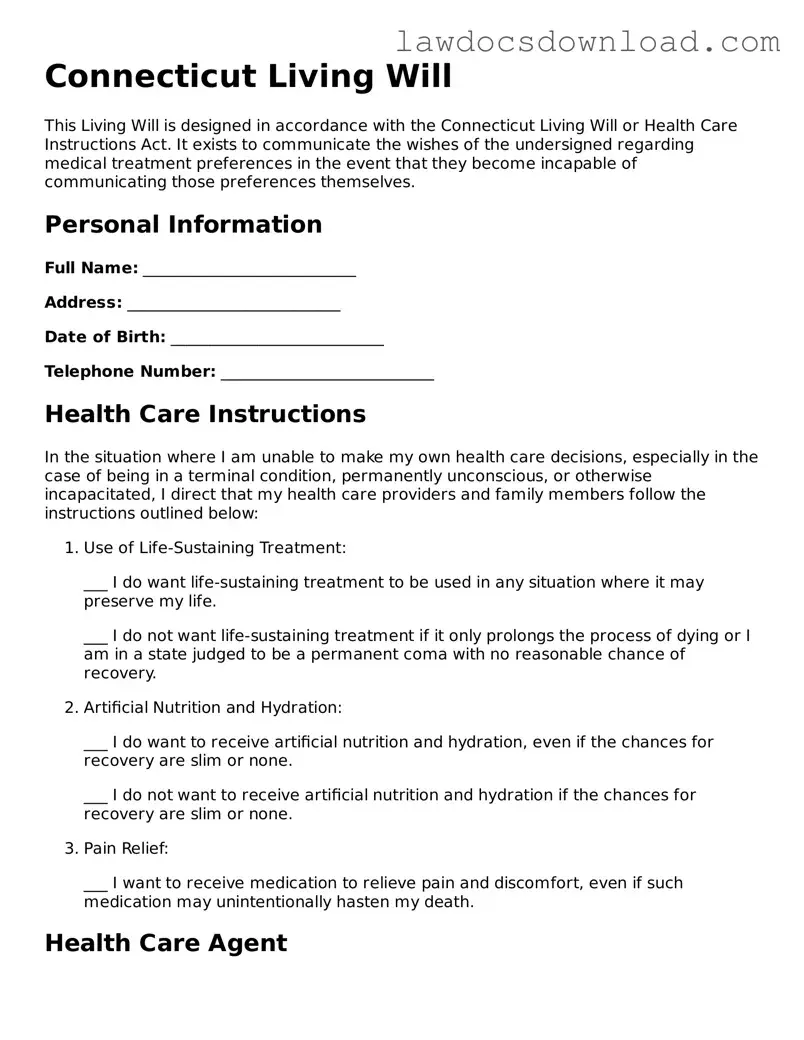Connecticut Living Will
This Living Will is designed in accordance with the Connecticut Living Will or Health Care Instructions Act. It exists to communicate the wishes of the undersigned regarding medical treatment preferences in the event that they become incapable of communicating those preferences themselves.
Personal Information
Full Name: ___________________________
Address: ___________________________
Date of Birth: ___________________________
Telephone Number: ___________________________
Health Care Instructions
In the situation where I am unable to make my own health care decisions, especially in the case of being in a terminal condition, permanently unconscious, or otherwise incapacitated, I direct that my health care providers and family members follow the instructions outlined below:
- Use of Life-Sustaining Treatment:
___ I do want life-sustaining treatment to be used in any situation where it may preserve my life.
___ I do not want life-sustaining treatment if it only prolongs the process of dying or I am in a state judged to be a permanent coma with no reasonable chance of recovery.
- Artificial Nutrition and Hydration:
___ I do want to receive artificial nutrition and hydration, even if the chances for recovery are slim or none.
___ I do not want to receive artificial nutrition and hydration if the chances for recovery are slim or none.
- Pain Relief:
___ I want to receive medication to relieve pain and discomfort, even if such medication may unintentionally hasten my death.
Health Care Agent
I appoint the following individual as my Health Care Agent to make health care decisions for me if I become unable to make those decisions for myself. This person was chosen for their willingness and ability to make health care decisions in accordance with my wishes as stated in this document.
Name of Health Care Agent: ___________________________
Relationship to Me: ___________________________
Address: ___________________________
Telephone Number: ___________________________
Signature
This document represents my wishes regarding my health care. I sign it willingly and freely.
Date: ___________________________
Signature: ___________________________
Printed Name: ___________________________
Witnesses
I declare that the person who signed or acknowledged this document as his/her Connecticut Living Will did so in my presence and that he/she appears to be of sound mind and under no duress, fraud, or undue influence. I am not the person appointed as agent or alternate agent in this document.
Name of Witness #1: ___________________________
Address: ___________________________
Telephone Number: ___________________________
Signature: ___________________________
Date: ___________________________
Name of Witness #2: ___________________________
Address: ___________________________
Telephone Number: ___________________________
Signature: ___________________________
Date: ___________________________

